We Dive Into Your Projects
What were the projects or initiatives you worked on? We probe to understand the scope, the stakes, and the significance.
"Tell me about the biggest project you led last year..."17+ Transportation Resume Examples
In Transportation, you're competing with 800 applicants per search
You're Not Rejected.
— You're Overlooked —
We fix your transportation resume with one conversation
The strongest transportation resumes lead with safety record, on-time delivery performance, cost reduction outcomes, and fleet efficiency metrics — not CDL endorsement lists or years of driving experience. Hiring managers at companies like J.B. Hunt, Werner Enterprises, Schneider National, Ryder, Penske, and XPO Logistics scan for quantified fleet management results, DOT compliance records, cost-per-mile reductions, and proof that your operational decisions drove measurable safety and efficiency outcomes. Every resume sample on this page was built through a 1-on-1 interview that extracted the specific fleet outcomes and safety records that differentiate candidates in a field averaging 800 competitors per job search.
Each transportation resume sample below was written through our 1-on-1 interview process. Click any transportation resume example to see the full sample and learn how we transformed their experience into proof.
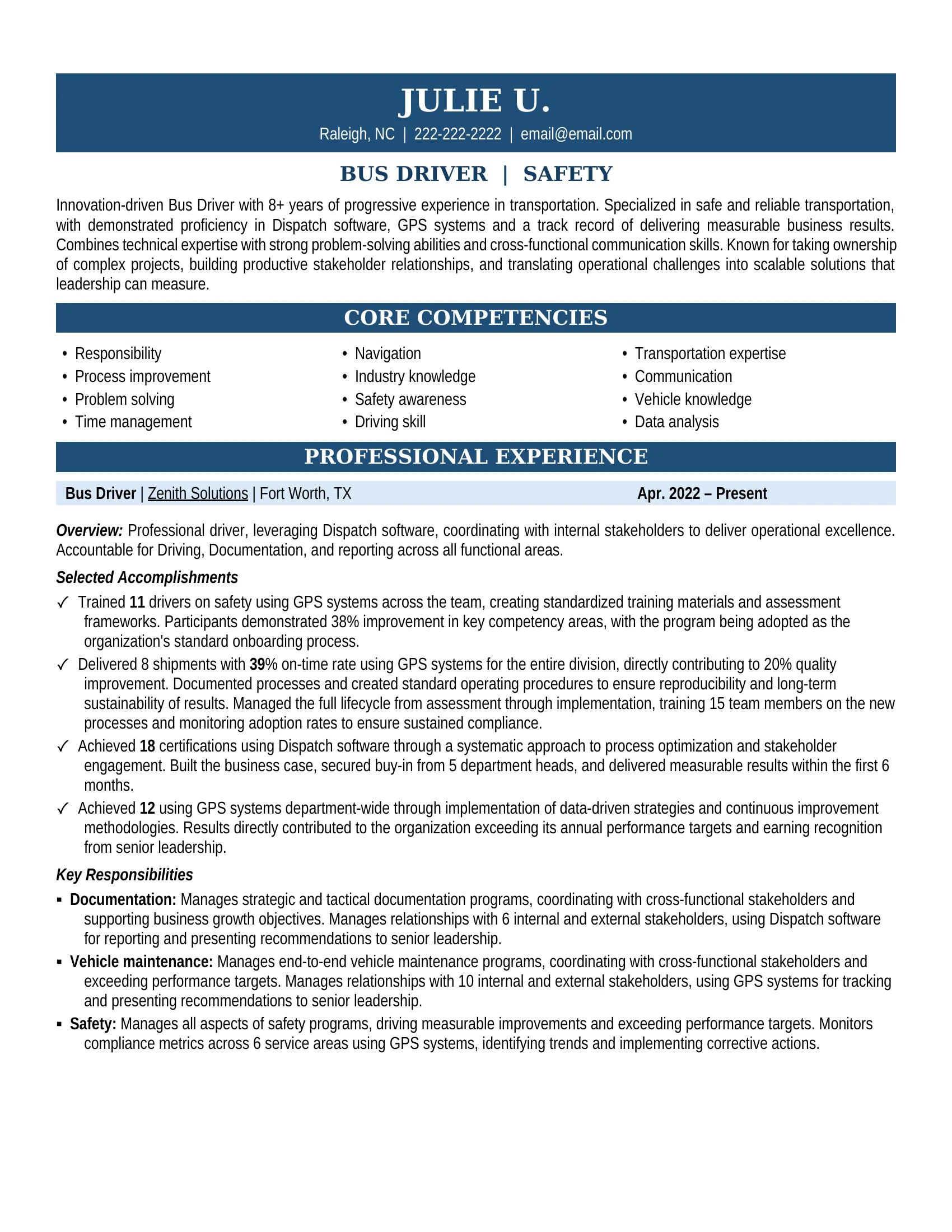
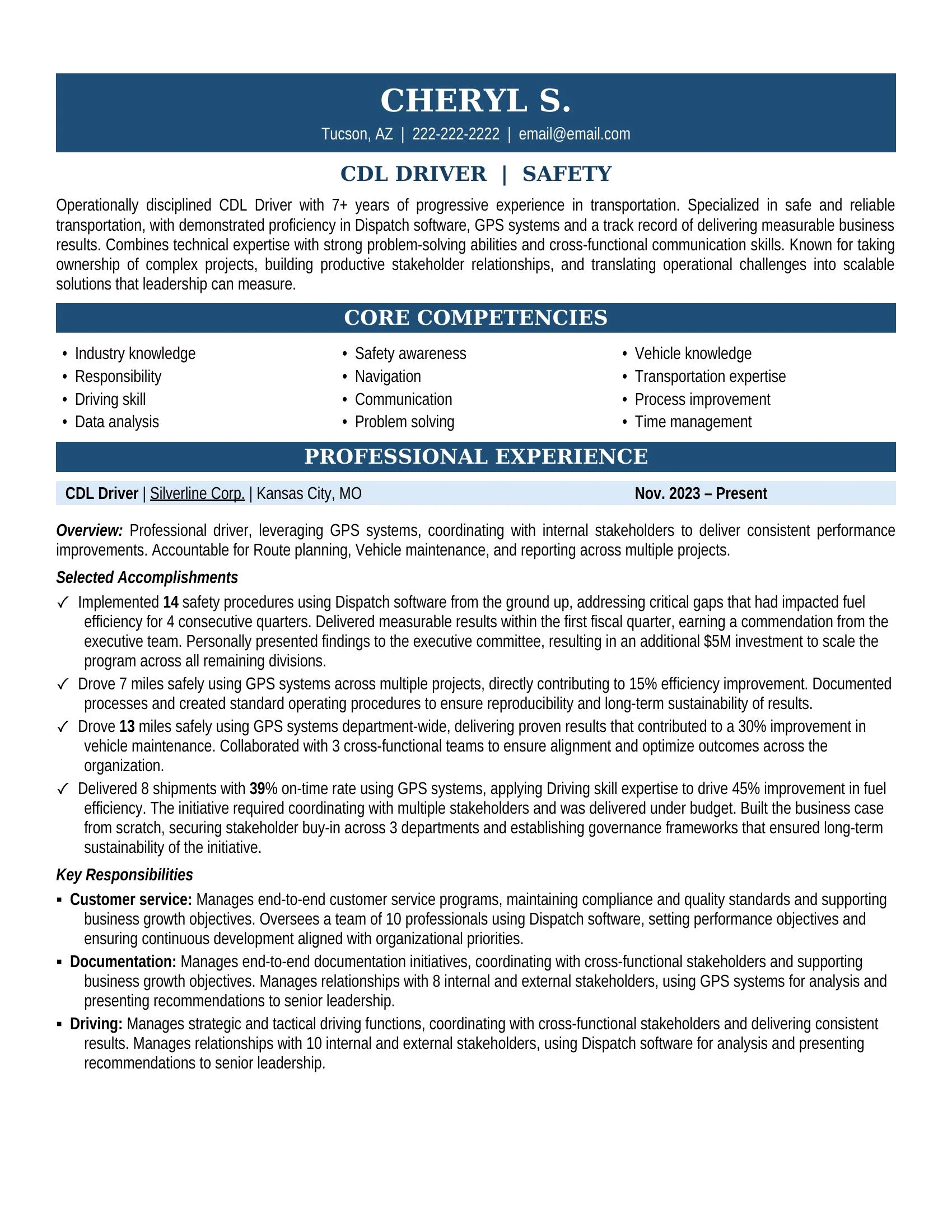
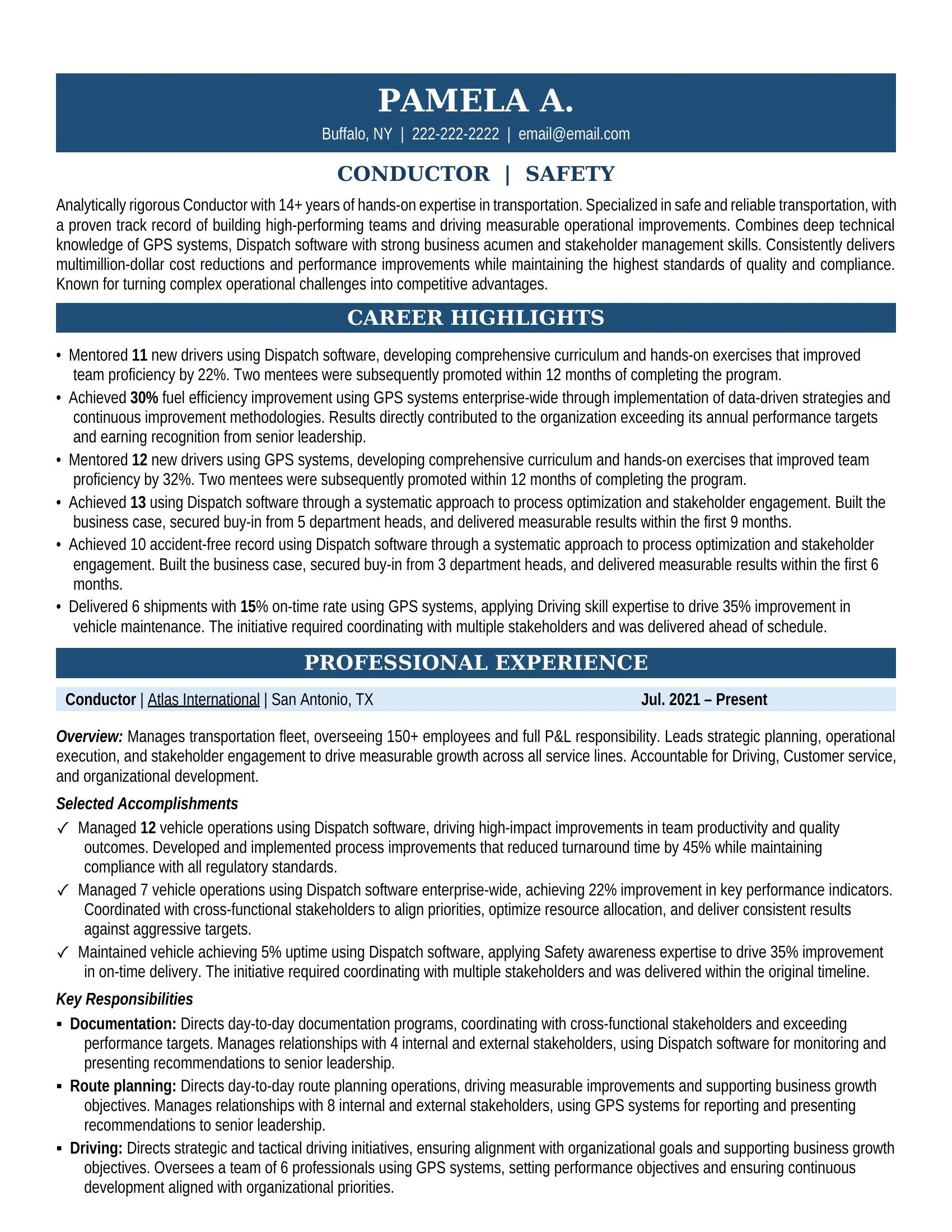
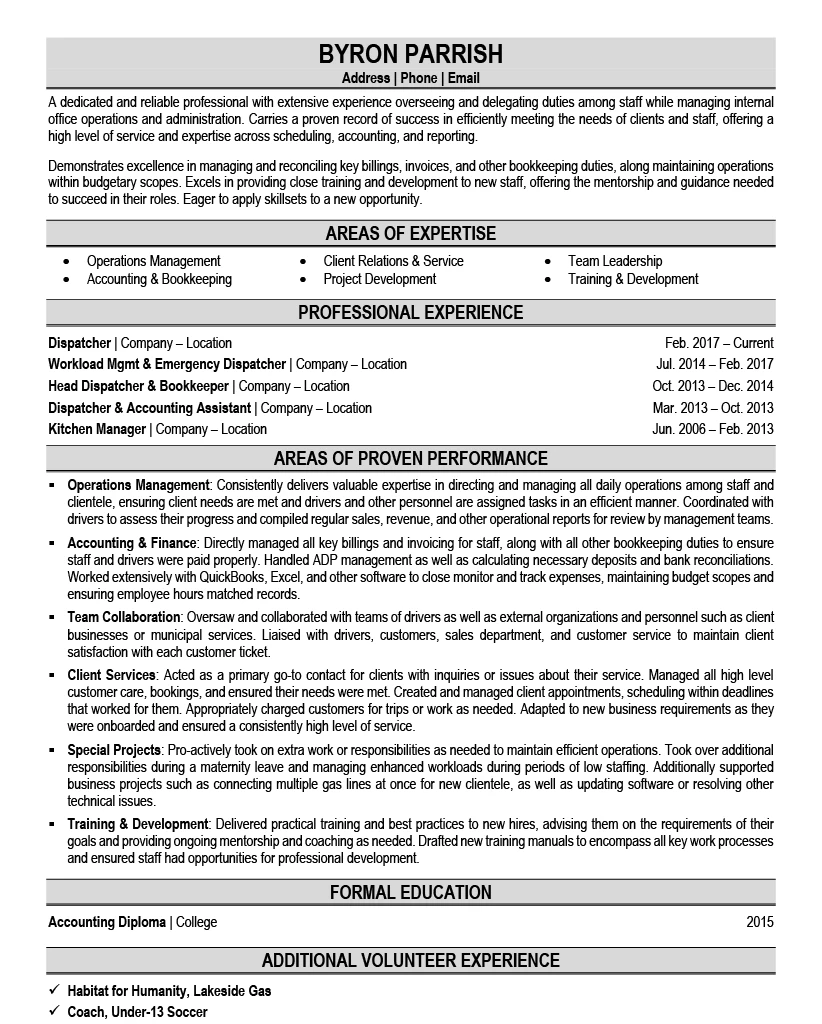
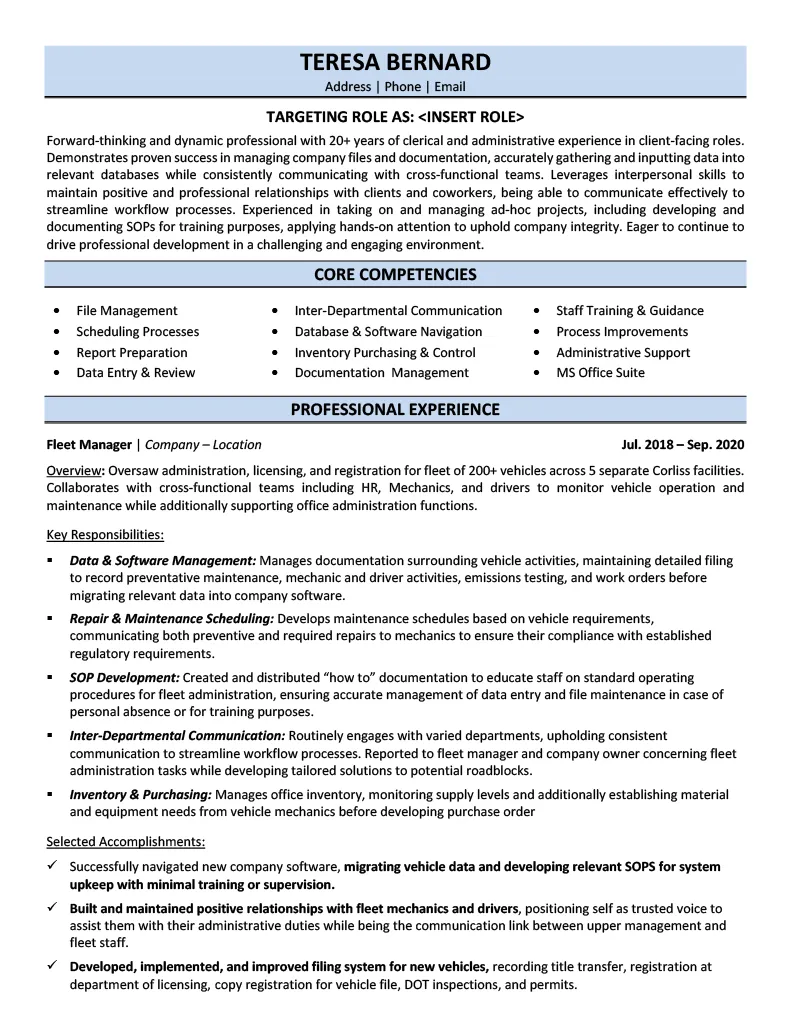
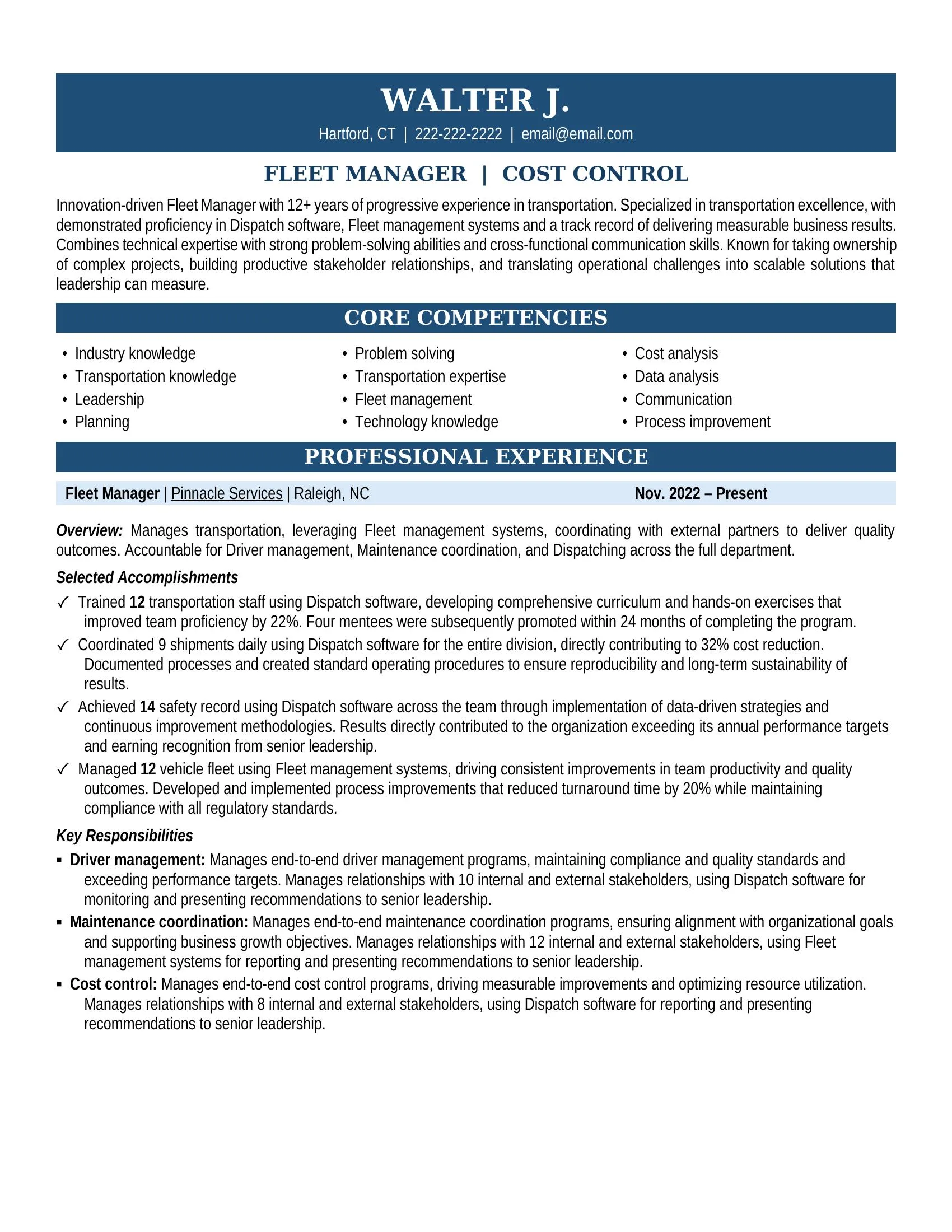
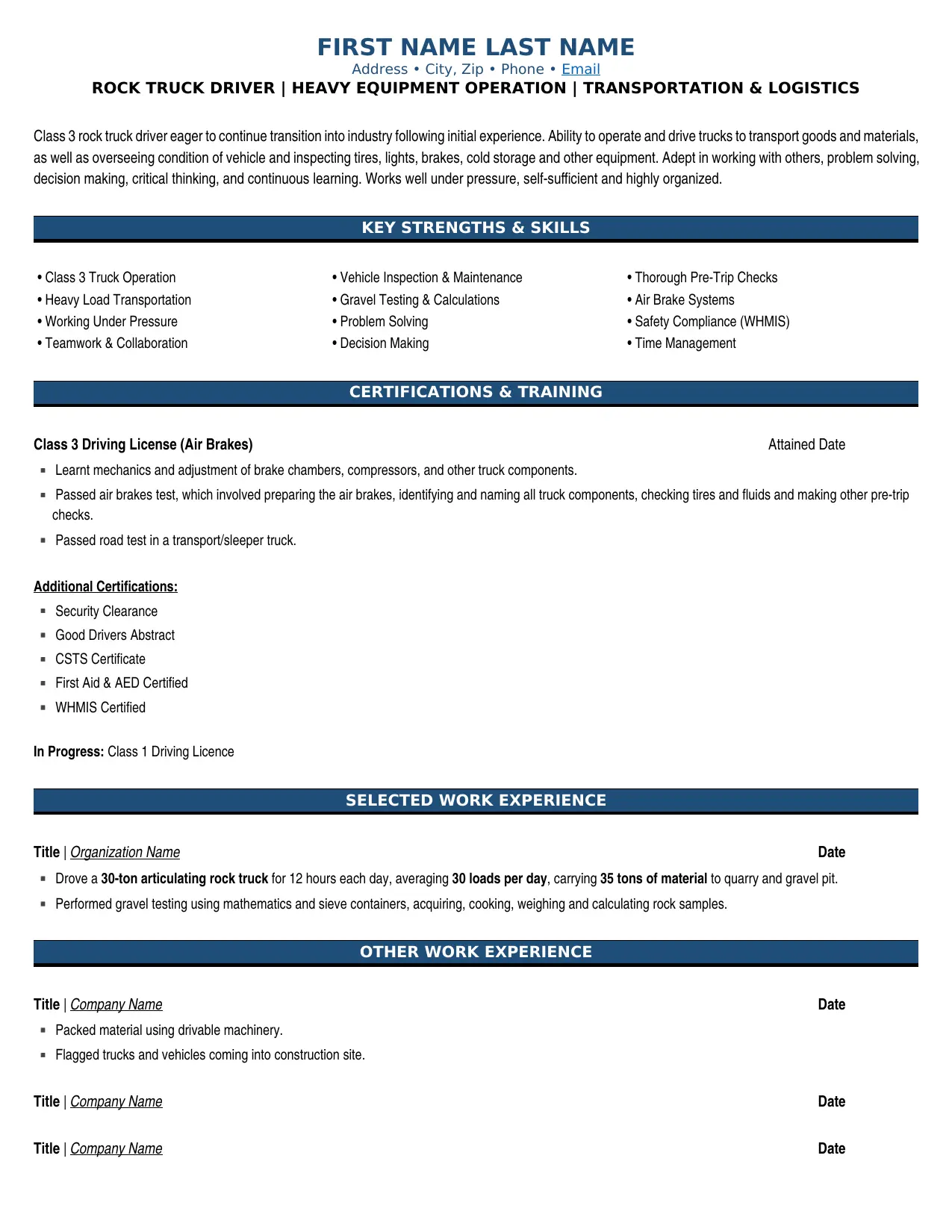
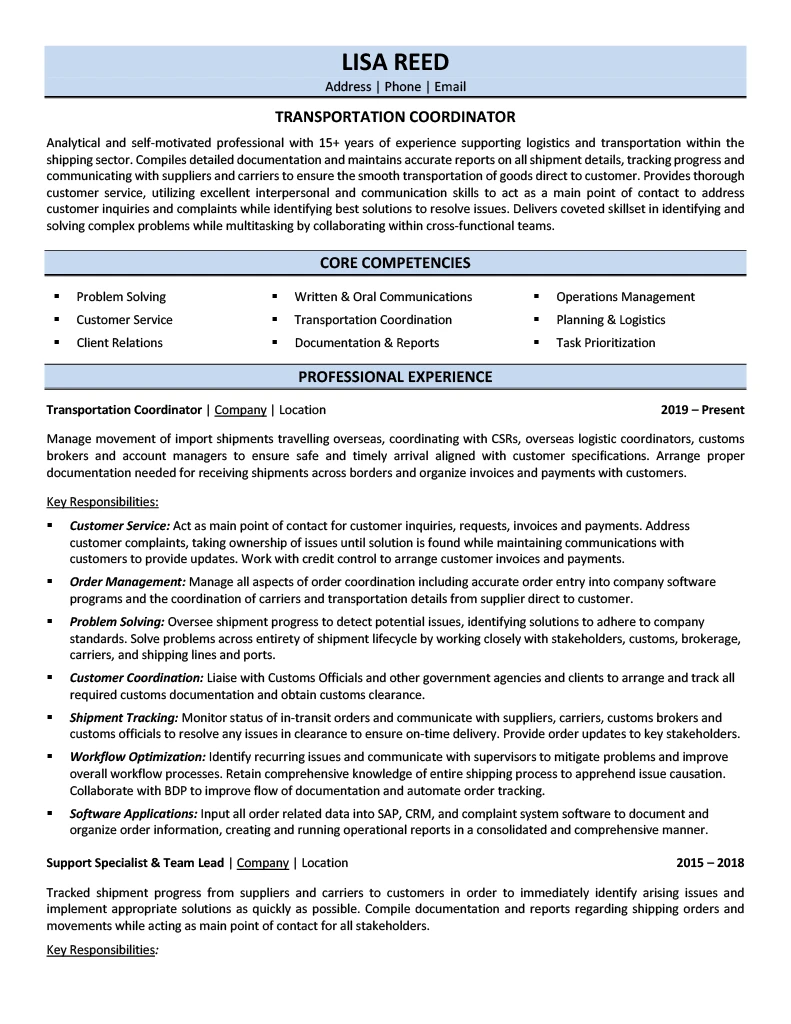
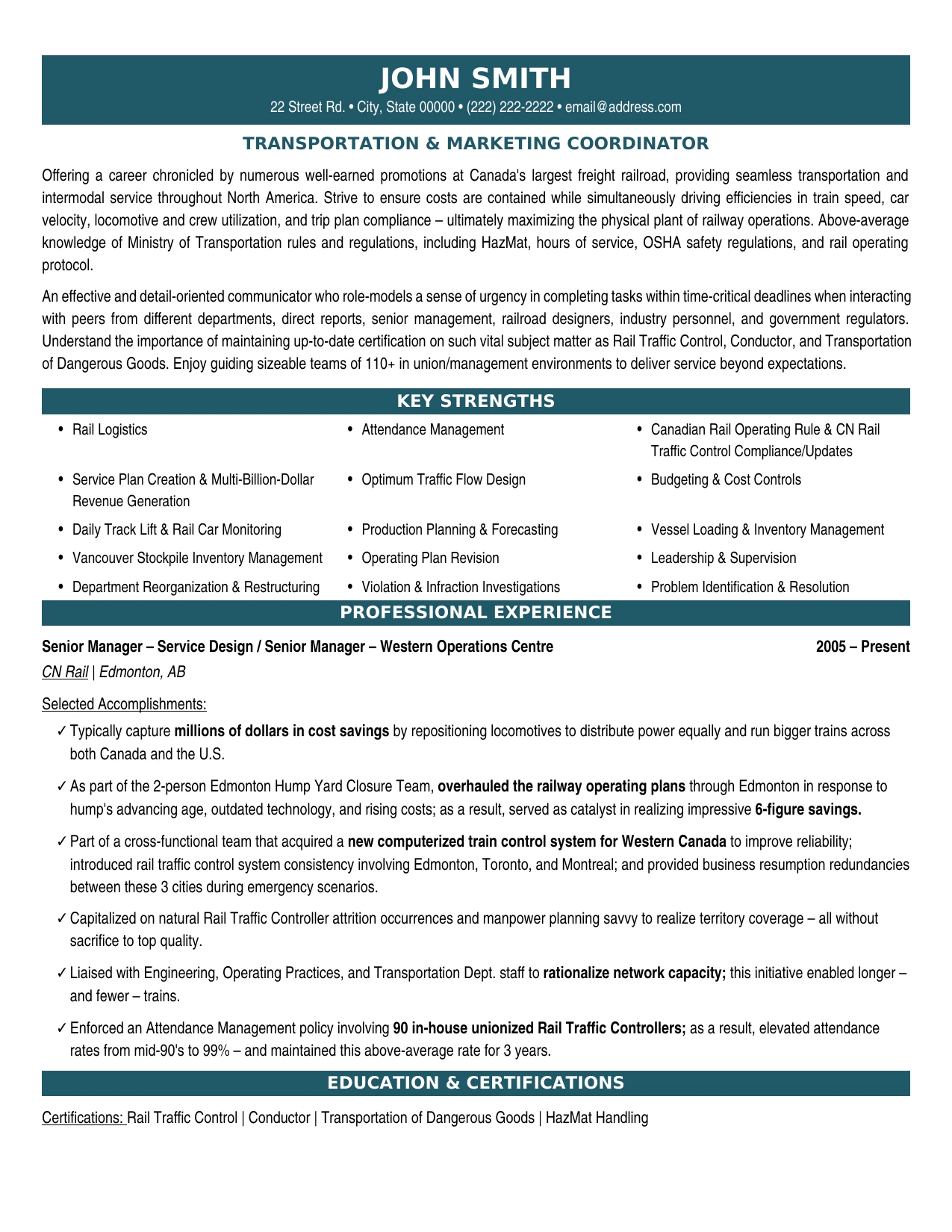
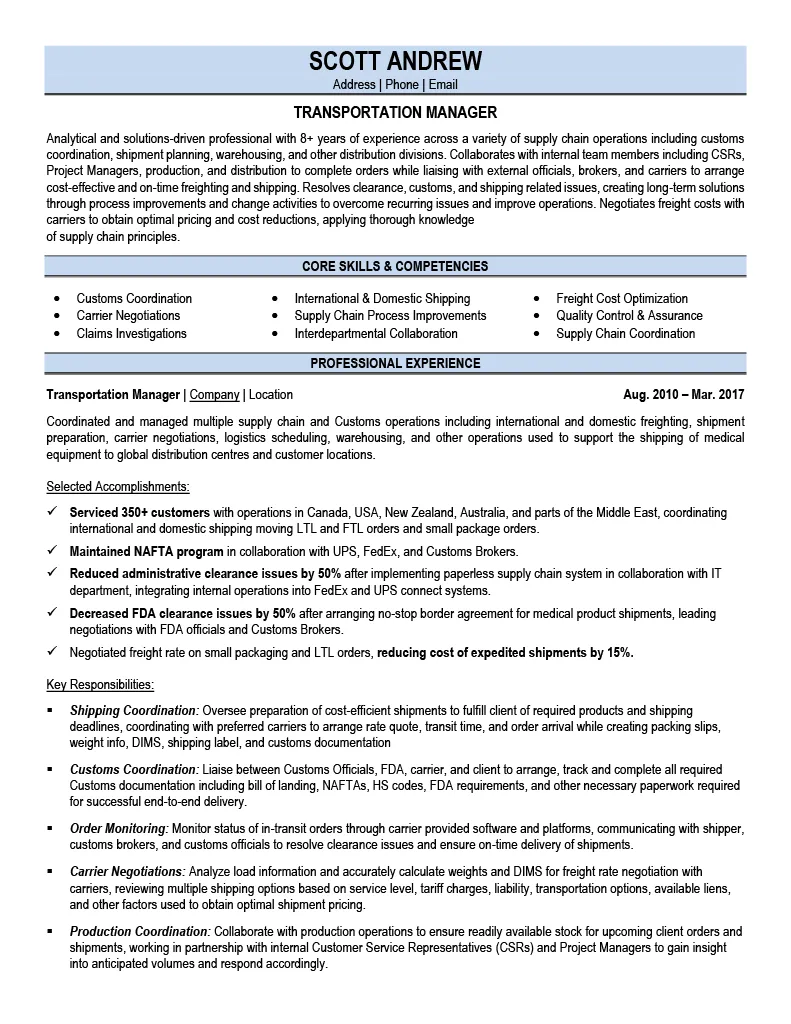
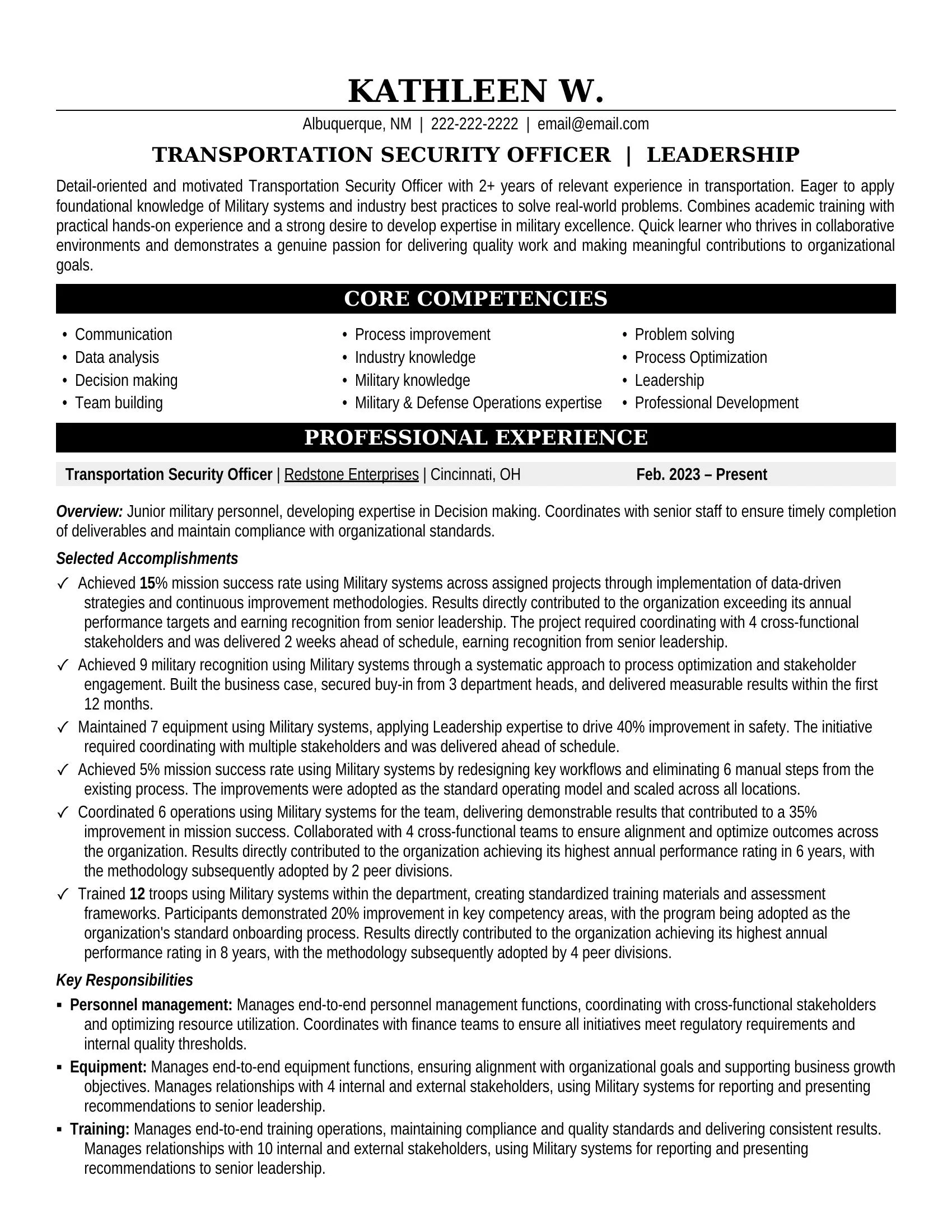
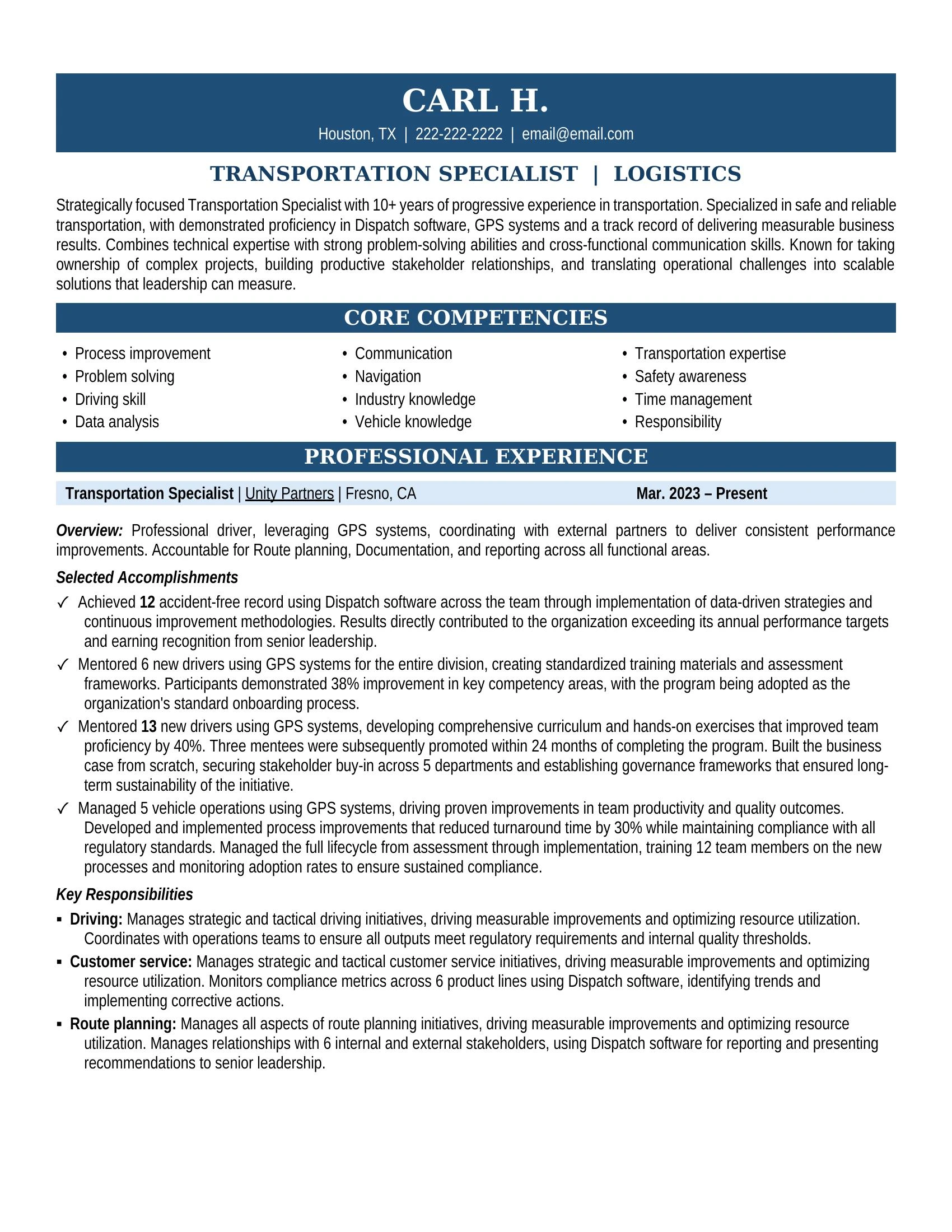
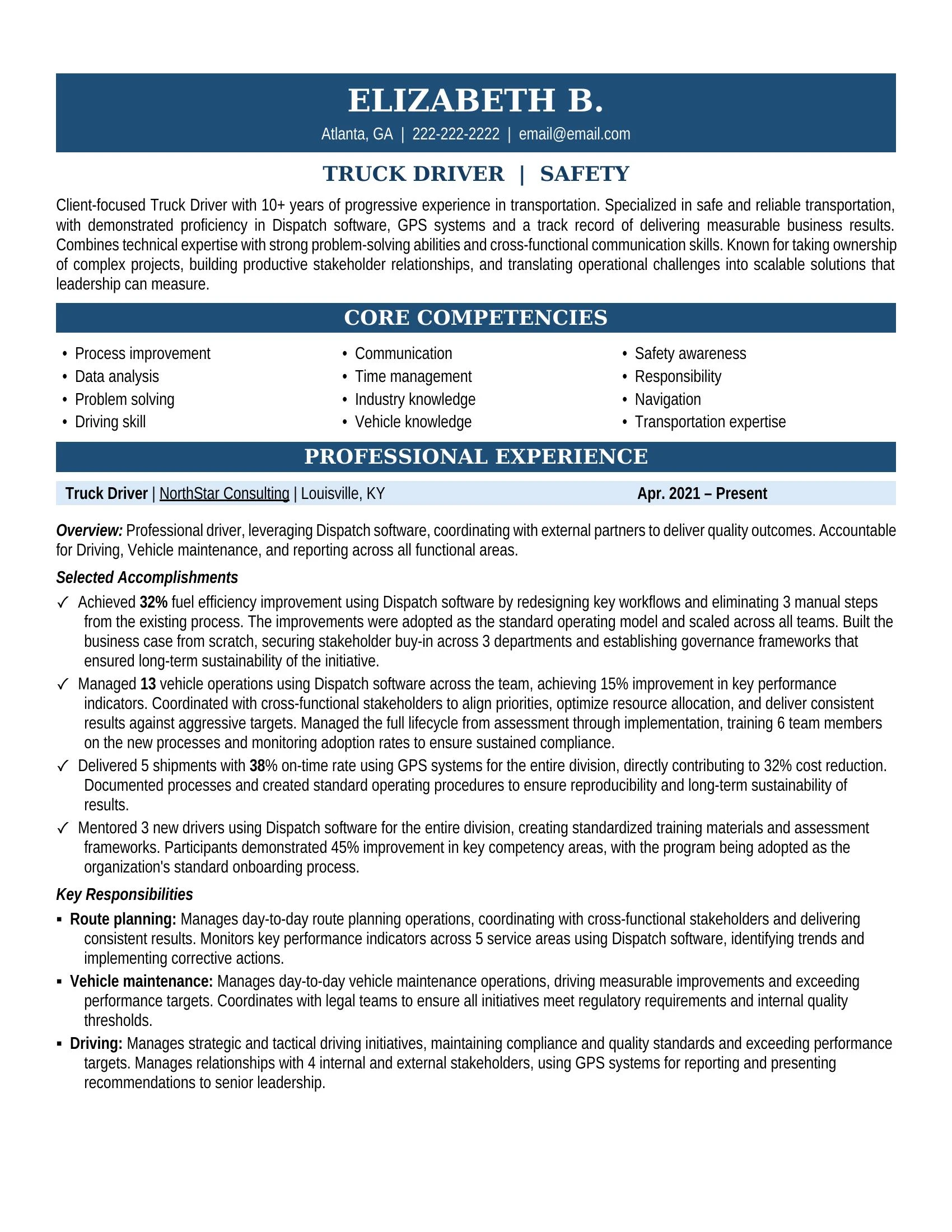
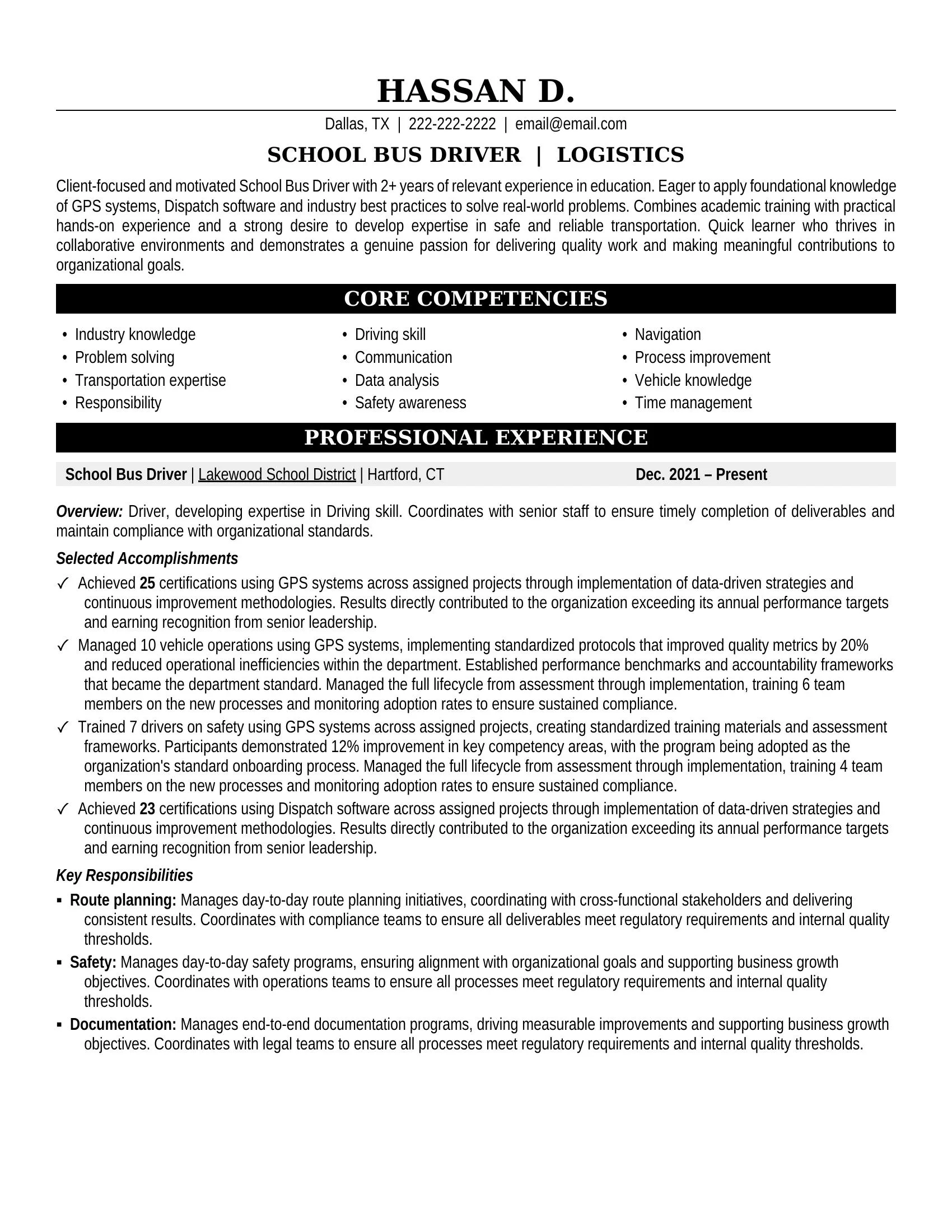
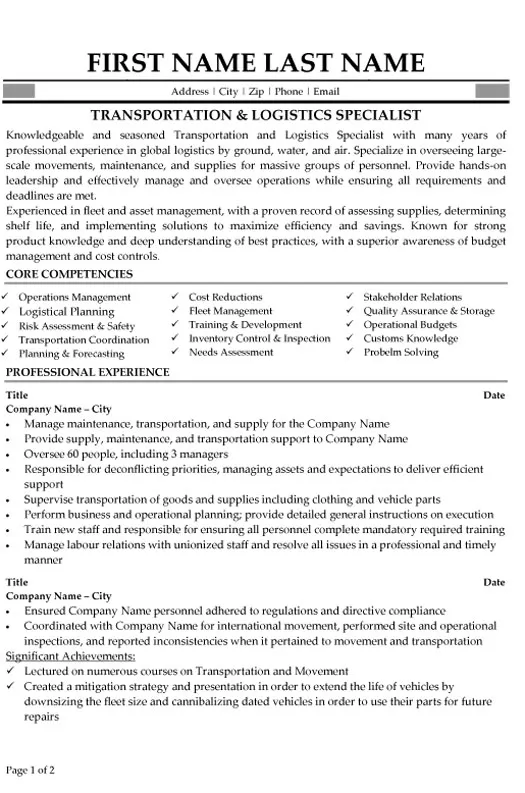
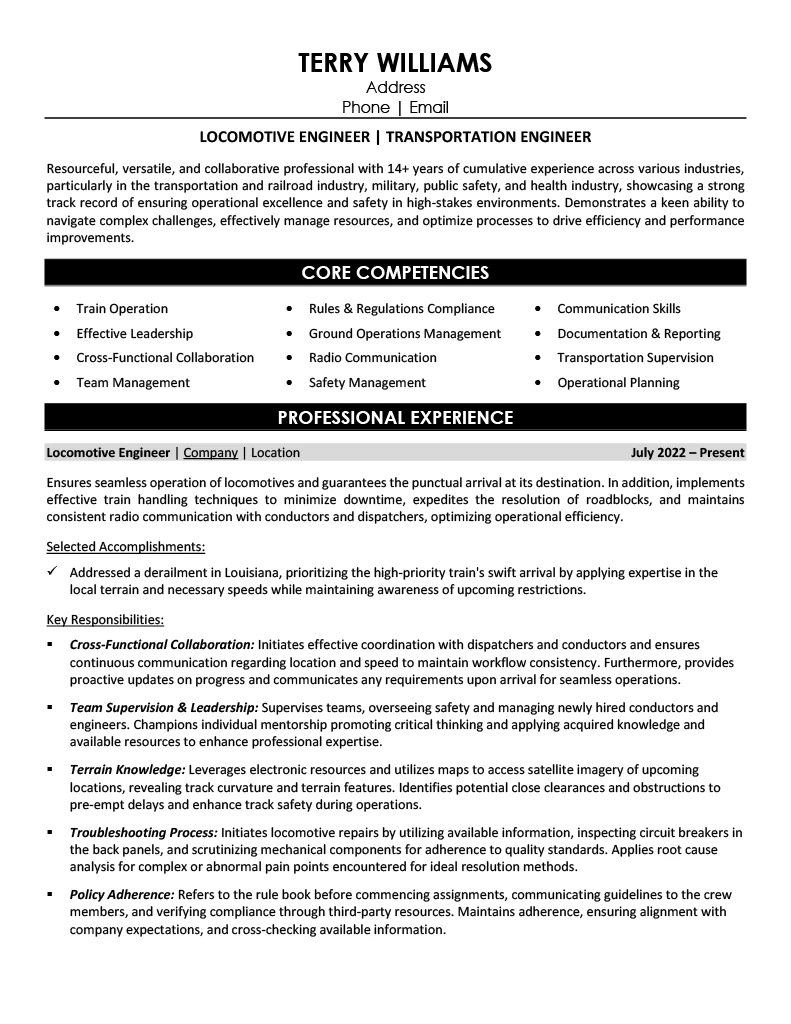
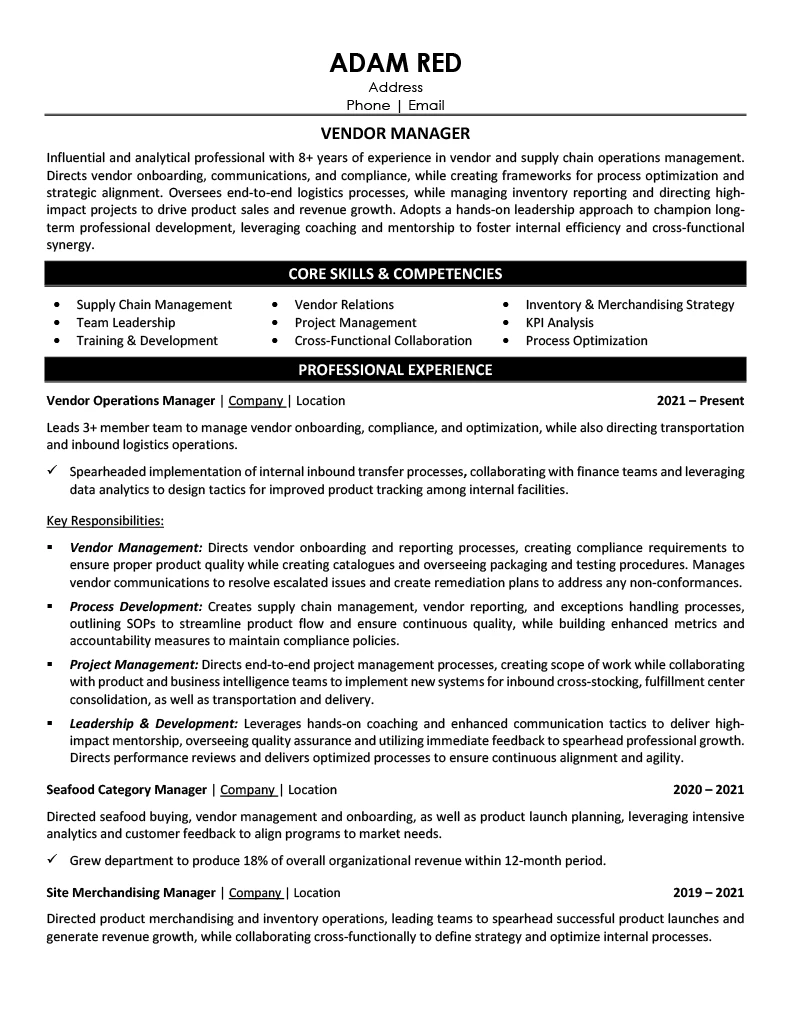
When a hiring manager reads your transportation resume, they should think:
"This person has solved the exact problems we're facing."
What were the projects or initiatives you worked on? We probe to understand the scope, the stakes, and the significance.
"Tell me about the biggest project you led last year..."What were the goals of the project? The company's objectives? We connect your work to business outcomes.
"What was the company trying to achieve with this?"What systems, processes, and strategies did you implement? This is where your expertise becomes visible.
"Walk me through how you actually made this happen..."What challenges did you face? What systems did you implement to overcome obstacles?
"What was the biggest challenge, and how did you solve it?"See how our interview process uncovered achievements and turned them into interview-winning proof.
Get Your Transportation Resume Written
Transportation jobs average 40 applicants per position. You're competing against 800 candidates. Our transportation resume examples show how to stand out.
Data based on LinkedIn job postings. Updated Mar 3, 2026.
Here's the math most job seekers don't do:
Your transportation resume must stand out against 800 professionals.
What makes you different is the story behind the projects.
Get Your Transportation Resume WrittenEvery transportation resume example on this page was written through our 1-on-1 interview process. We extract achievements you'd never think to include.
We identify keywords and achievements that get transportation resumes noticed.
Targeted questions about your transportation projects and results.
Transform responsibilities into quantified achievements.
ATS-optimized resume in 3 business days + 14-day revisions.
80% of transportation positions are never advertised. Get your resume directly into the hands of recruiters filling confidential searches.
When you purchase our Resume Distribution service, your resume goes to 450+ recruiters specializing in transportation — included in Advanced & Ultimate packages.
| Agency | Location |
|---|---|
|
HA
Hays Specialist Recruitment
|
Nationwide |
|
RA
Randstad Staffing Agency
|
Nationwide |
|
KE
Kelly Services Workforce Solutions
|
Nationwide |
|
MA
ManpowerGroup Talent Solutions
|
Nationwide |
|
AD
Adecco HR Services
|
Nationwide |
Transportation averages 40 applicants per position across 5,000 active job postings — and competition splits dramatically between coordination/management roles and driving roles. Transport Coordinator positions are the most competitive at 79 applicants per opening, where employers scan for quantified operational efficiency and cost management outcomes — not just coordination tasks. Dispatcher draws 57, evaluated on operations, cost control, and service level. Transportation Manager averages 51 and Fleet Manager draws 44-50, both screened for cost reduction, on-time delivery, and fleet efficiency. Truck Driver averages 48, Transportation Coordinator draws 47, Transportation Specialist sees 44, Bus Driver draws 40, CDL Driver averages 38, Conductor sees 37, Rock Truck Driver draws 36, and Transportation Security Officer averages 35. Apply to 20 positions in a typical 30-day search and you're one of roughly 800 candidates competing. In transportation — where every mile, minute, and dollar is tracked — the resume that quantifies fleet outcomes beats "CDL-A driver with clean record" every time.
Because transportation achievements are fleet outcomes, safety records, and cost reductions that questionnaires never capture. A Fleet Manager who writes "managed company fleet" could describe anyone with a fuel card and a maintenance schedule. Our interview process extracts the cost reduction percentages, on-time delivery rates, and fleet efficiency outcomes that prove you deliver — in a 44-50 applicant field. A Transport Coordinator who claims "coordinated shipments" becomes someone with documented operational efficiency results and cost management outcomes — at 79 applicants per opening. A Dispatcher who "handled dispatch operations" becomes someone with quantified operations improvements, cost control results, and service level outcomes — at 57 applicants. A Truck Driver who "delivered freight" becomes someone with measurable safety record, on-time delivery rate, and vehicle care outcomes — at 48 applicants. A questionnaire produces "experienced transportation professional with CDL-A and 500K accident-free miles." The interview captures the costs reduced, the fleets optimized, and the safety programs built.
They're screening for safety, efficiency, and cost outcomes — not just license endorsements and miles driven. For Drivers (CDL, Truck, Bus, Rock Truck): safety record, on-time delivery, and vehicle care — CDL Driver draws 38, Truck Driver 48, Bus Driver 40, and Rock Truck Driver 36 applicants where accident-free miles, DOT compliance, and on-time percentages separate candidates. For Dispatchers: operations, cost control, and service level — at 57 applicants where load optimization, route efficiency, and driver utilization prove capability. For Coordinators: operational efficiency and cost management — Transport Coordinator draws 79 and Transportation Coordinator 47 applicants where quantified shipment outcomes and cost-per-load reductions differentiate. For Fleet Managers: cost reduction, on-time delivery, and fleet efficiency — at 44-50 applicants where fleet utilization rates, maintenance cost reductions, and uptime percentages matter. For Transportation Managers: cost reduction, on-time delivery, and fleet efficiency at the strategic level — at 51 applicants where budget management and team leadership combine. ATS systems at J.B. Hunt, Werner, and Schneider keyword-scan for CDL endorsements, DOT compliance, HazMat, TWIC, TMS systems (McLeod, TMW, Oracle), and safety certifications before a hiring manager reviews your resume.
It matters fundamentally — these are different transportation functions evaluated by completely different metrics. Drivers (CDL, Truck, Bus, Rock Truck, Conductor) prove operational capability through safety record, on-time delivery, and vehicle care — drawing 36-48 applicants where accident-free miles, DOT inspection pass rates, and delivery accuracy matter. Dispatchers prove coordination capability through operations, cost control, and service level — at 57 applicants where load-to-driver ratios, empty mile reduction, and on-time dispatch rates differentiate. Coordinators prove operational efficiency through cost management and shipment outcomes — Transport Coordinator draws 79 (the highest in transportation) where quantified operational results matter most. Fleet Managers prove management capability through cost reduction, on-time delivery, and fleet efficiency — at 44-50 applicants where fleet utilization, maintenance cost per unit, and vehicle lifecycle management differentiate. Transportation Managers prove strategic capability through cost reduction, on-time delivery, and fleet efficiency at the organizational level — at 51 applicants where budget authority, team development, and carrier management combine. Security Officers prove protective capability through leadership, operations, and team management — at 35 applicants. During your interview, our writers identify your transportation function and extract the safety records, cost outcomes, and operational metrics that employers evaluate.
Our transportation resume packages are based on career level and interview depth — from a 30-minute early career session to a 90-minute VP/COO executive interview. When evaluating price, consider what the number actually buys. A company charging $99: after the company takes its margin, the writer earns $40-60 — enough for about 45 minutes of total work including writing. That's a questionnaire reformat that produces "experienced transportation professional with CDL-A and strong safety record." Our Professional-level interview alone is 60 minutes, followed by job posting analysis, drafting, and revisions — producing quantified fleet outcomes, safety records, and cost reductions that prove impact in a field averaging 40 applicants per position. View current packages and pricing.
We offer a 90-Day Interview Guarantee. If you don't land interviews within 90 days of receiving your final transportation resume, we rewrite it free of charge. We can make this guarantee because our interview-based process produces resumes built on the safety records, on-time delivery rates, and cost reduction outcomes that transportation employers respond to. Browse the resume samples on this page to see the quality of work we deliver.